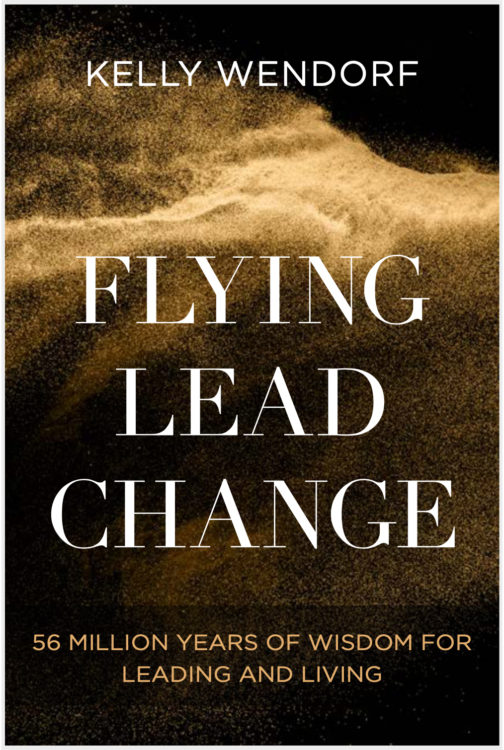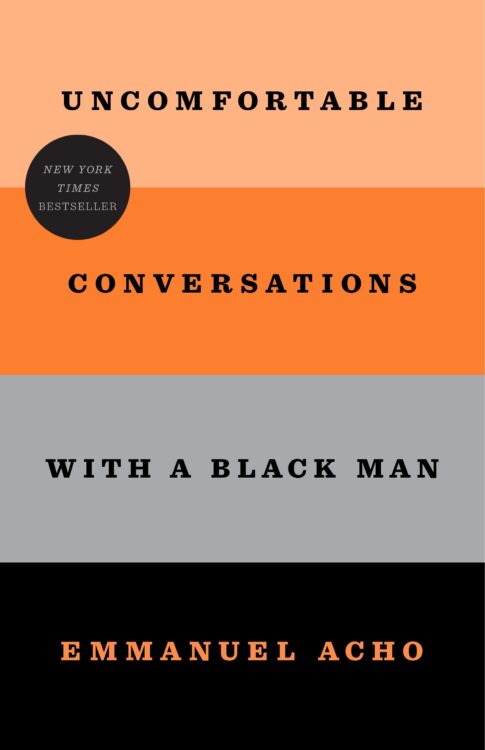First, the President was assassinated, and the members of Congress were killed with machine guns. Then the army declared a state of emergency. Shocked and stunned, people stayed at home glued to their televisions. Islamic fanatics were falsely blamed for the execution of the Government. The Constitution was suspended. Other controls crept in—newspapers were censored, cash was replaced with Compucards, and everyone had to carry an Identipass. In a final sucker punch, women were sent home from their workplaces, escorted by militia armed with semi-automatic rifles, while their bank accounts were drained—all funds and assets transferred to a male member of their family.
Such is a scene in the dystopian novel The Handmaid’s Tale by Margaret Atwood, a book that explores themes of subjugated women in a patriarchal society, loss of female agency and the suppression of women’s reproductive rights.
Offred, the protagonist and narrator of the book, recounts the fall of the United States and the rise of the Republic of Gilead—a military dictatorship based on a twisted interpretation of the Old Testament. The regime reorganizes American society into a rigid hierarchy where women become the lowest ranking class with no reproductive rights. Fertile women are enslaved as concubines, forcibly assigned to be raped by and produce children for the “Commanders”, the ruling class of men. These women are known as “Handmaids”.
As so many citizens of countries that have fallen into the hands of fascist dictatorships will attest: first it happens gradually, then all at once. The toppling of a democracy is systematically engineered in the background for decades, subtly without much ado. Then, without warning, suddenly people are fleeing to their homes to switch on the televisions. Like the proverbial frog who boils to death in slowly warming water, no one sees it coming.
Such is the current scenario in our beloved country. Slowly over time the threads in the fabric of our democracy are pulled, slowly the edges fray through a deliberate erosion of rights. Then, in a game of Constitutional Jenga, the Supreme Court pulls a primary legal keystone away from the American people. Last month’s Dobbs v. Jackson Women’s Health Organization decision overturned the 1973 Roe v. Wade decision that recognized a woman’s right to terminate a pregnancy. For the first time in our history, rather than conveying rights, the court has explicitly taken a constitutional right away. The Court also stated they have birth control and gay marriage in their crosshairs.
Unequivocally, our democracy is teetering on collapse.
This is not a time for optimism or hopefulness. This is not a time for “I’m ok, you’re ok” and other domesticated feel-good spiritually correct platitudes. Our country is under threat, and we must be willing to turn and face the horror of that reality. The trifecta of Facebook, Fox News and the ultra-conservative platform is actively creating conditions for minority rule.
In 1941 the United States began their clandestine efforts to create the world’s first atomic bomb. The project received its code name—The Manhattan Project—and eventually Robert Oppenheimer was put in charge of overseeing the final construction in Los Alamos, New Mexico. As I write this essay, I can look up and see outside my window the eerie outlines of the laboratory embedded in the Jemez Mountains to the west.
Not only was The Manhattan Project kept secret from even the most top US officials, but it was also hidden from most of the 120 scientists involved. The architects of the bomb knew that all 120 people would never participate if they really knew about the monster that was being created. And so, each of the various parts of the bomb were created separately and secretly. The different teams that oversaw those various parts were never allowed to know the whole picture.
Like this, those elite minority who desire unmitigated power and wealth have harnessed a confluence of various, disparate, and separate agendas: the Freedom Agenda, the Pro-Business Agenda, the Christian Agenda, the Racist Agenda, the Media Agenda, the Big Pharma Agenda, and countless others to build a monster—the new American order.
What worries me as much as the recent events is the way we are responding. While some are outraged and marching in the streets, others are walking around in a state of bizarre numbness—life seems to be going on as usual. In Offred’s telling in A Handmaid’s Tale, there is surprisingly little resistance to the new regime, even after it disenfranchises women and strips them of their jobs and property.
We are given little to do in the face of losing our rights as women. We are told to vote. But given the state of our electoral system this option can seem increasingly ineffective. Or we can go march somewhere. Or we can just collapse in a state of learned helplessness and close shop. So what can we do?
In a moment like this, when I am being called forth as a woman leader to make some kind of difference and impact, I am urged to look towards the feminine mantle-carrier of a 56-million-year-old system—my alpha mare Artemis.
Over the ten years that she has been with me, she has assumed the lead within every single herd in which she has resided, and there have been several. How? Through her presence, relentless persistence, and a determined ongoing commitment to teach others how to be in a mutually respectful community. Some years ago, an event demonstrated this perfectly. It happened when one of my horses, Brio, first arrived to live here.
An enormous red-brown lusitano (Portuguese bull-fighting horse), Brio had lived amongst stallions for much of his life. This is akin to a young man being raised motherless in a street gang. Lacking the usual discipline and cultural refinement that mares teach, Brio had not a single clue how behave within a harmonious community.

Like Godzilla he took over the city. Not once did he pause to check to see the established order or learn who belonged where. Naturally peaceful and conflict-averse, the horses complied, but they were not loyal to this new insurgent. Though Brio crowned himself king, he spent his days alone in one corner of the paddock while the others huddled together in the other. And where was Artemis in all this? She did not fight him. She simply, quietly, yet deliberately gave way.
Artemis had another plan.
In subsequent weeks, I learned so much from Artemis about power. As lead mare, her role required her to sustain the ages-old evolutionary core tenets of herd wellbeing: safety, connection, peace, freedom, and joy through her care and her presence. She was not wired to suddenly depart from her intrinsic nature as a leader and duke it out with the usurper. What an interesting conundrum Brio presented for Artemis. How to maintain those feminine-leadership qualities in the face of a coup? Would she take up arms with the gnashing of teeth and hurling of hooves? But that would be counter to her instincts. And besides, Brio had easily another 700 pounds on her.
At first it appeared as if Artemis did nothing. I feared she had resigned herself into the new status quo and that the herd would be sad and depressed forever. But I had underestimated her. In fact she was leveraging two of the most potent elements of physics—time and presence.
Artemis saw no need for running around burning calories to take control of things. She let time do the work and used her presence to change the power dynamic. What evolved over the weeks that became months was a subtle yet clear shift of power. It was more like a ripening than a dramatic reclamation, more a gentle and gracious unfurling than a grand sweep. And then one morning when I went out to feed the horses, I saw Brio quickly move away from Artemis in reaction to the subtlest pin of her ears in his direction. She was back. And with her, the equilibrium of the entire herd. Her persistence tipped the scales. Little by little her firm yet small requests, her subtle refusals, and the inertia of the other horses’ positive responses to her enlightened leadership style won over his might.
Artemis did not fight to gain her power back inside Brio’s world. A world of violence, domination, and subjugation. She changed the herd’s world entirely.
And what happened to Brio? Rather than being called out (or cast out), Artemis’s reclamation “called him in”. He was called in to a different world, one he could not imagine nor make possible by himself. He then learned how to be respectful, and how to live in a community governed by peace and equilibrium. He is far happier than he was in his male-dominated gladiator days.
Like Artemis in a coup, right now women leaders are presented with a similar opportunity. We will not win back our seat unless we do something radically unusual with our leadership. We will never defeat the patriarchy with gnashing of teeth and punching of fists. Instead, we must call the patriarchy in to a world it cannot imagine by itself.
We must pull this issue out of the limiting context of “women’s rights” and instead be profoundly and firmly present with our male counterparts and teach them about “human rights” by calling them in to another way, another world, and another possibility. We must make this issue (and all issues pertaining to minority groups) relevant to the male majority. An important education is in order. It is time to call them in.
Artemis has much to teach us. As women we must stop fighting for power and equality in a patriarchal world. Because there is no such possibility within that system. Patriarchy cannot operate without defined social hierarchy, violently maintained. Rather, we need to call people in to our world. And our world—a world informed by the feminine—is a different world. It is one informed through care, presence, mutualisms, collaboration, an intuitive wisdom-knowing, a desire for wholeness and commitment to the collective good.
We also need to call in our young people. While more open and more at home in a just world, many—out of disillusionment and anger—have opted out of voting. We need to teach them why voting is an imperative right now and ask them to teach their friends the same.
So what I’m talking about here is a grass roots revolution of firm, directive and uncompromising conversations informed by what we as women know is possible. What if each one of us committed to engaging in uncomfortable yet warmly inviting dialog with as many people as possible each and every day? What if instead of turning away from deep dialog in edgy places, we lean in? And what if we use those conversations to respectfully and inclusively teach others about a different world. One free of misogyny, racism, homophobia, and violence in all its forms.
How do we do this? We have many examples to look towards besides Artemis. I’m thinking of Emmanuel Acho and his game-changing Uncomfortable Conversations with a Black Man who models beautifully how to call in others away from their racism and towards a new world. “Getting uncomfortable is the whole idea,” he writes. “Everything great is birthed through discomfort.”
I’m also reminded of my daughter, who at the ripe old age of 19 hit the mat with me over and over again to teach me about my implicit bias, racism, sexism and stereotypes. Not once did she turn away from an uncomfortable conversation in order to keep the peace. Like Acho (and Artemis) she stayed persistently, yet respectfully present, and called me in to waking up from a trance that was overlaid upon my mind and heart since the moment I was born. While not easy for me at the time, I will be forever grateful for that gift because the world I live in now is more beautiful, kind, and awake.
Uncomfortable conversations are how a new world is created. One person at a time. Persistently. Daily. Often.
The Handmaid’s Tale is not only a story about one woman’s demise at the hands of a fascist empire, it is a story of what happens to good men in those conditions. When Offred loses everything, Luke—her husband—is not outraged. Instead, he tells her not to worry and promises to take care of her. Later, during marches, he tells her that it would be “futile” to march and that she needs to think about him and their daughter. Although Luke is portrayed as a decent man, he yields to the systemic violence towards and oppression of women. Gilead re-establishes the old patterns and mindsets of patriarchy, and Luke easily slips back into those patterns, promising to “take care” of Offred instead of fighting for her rights.
The Handmaid’s Tale is The American’s Tale—a story about the downfall of an entire society and the end of enlightenment. I believe our only chance now is for each and every one of us to do what Artemis would do.





